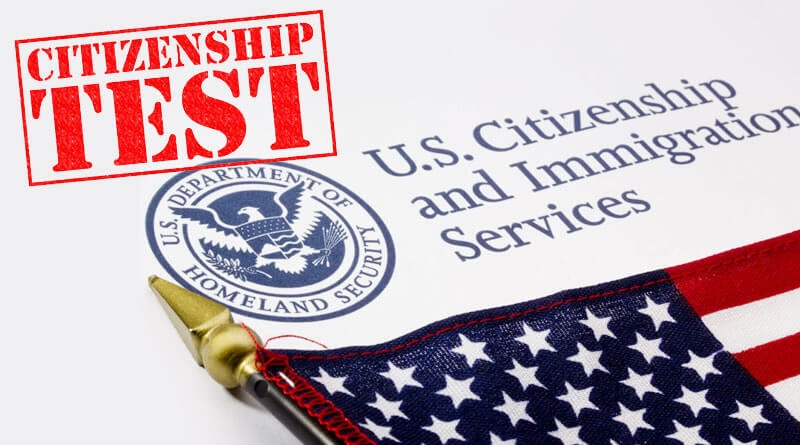The Trump administration has implemented stricter requirements for the examination necessary to acquire U.S. citizenship.
Beginning in mid-October, immigrants seeking naturalization through legal channels will encounter a more rigorous testing process.
U.S. Citizenship and Immigration Services (USCIS) has announced that the revised test will contain 128 questions covering American history and governmental systems, an increase from the previous 100 questions.
The examination will continue to be conducted orally: candidates must correctly answer 12 questions out of 20, an increase from the previous requirement established in 2008, which required six correct responses out of ten.
Applicants will receive two opportunities to succeed. Should they fail both attempts, their citizenship application will be rejected. For individuals aged 65 and above who have maintained permanent residency for at least 20 years, a simplified version is available: they need only study 20 questions and may take the test in their native tongue.
The expanded question pool now incorporates subjects including the 10th Amendment, the Federalist Papers, President Dwight Eisenhower, and historical figures such as Alexander Hamilton and James Madison.
The White House justification
Matthew Tragesser, a spokesman for USCIS, offered a strong defense of the modification.
He said reinstating the 2020 test, introduced during Donald Trump’s first term, is intended to ensure new citizens are fully integrated.
“American citizenship is the most sacred citizenship in the world and should only be reserved for aliens who will fully embrace our values and principles as a nation,” Tragesser said, according to CBS News.
He also framed this reform as the first step in a broader program: “This is the first of many changes that will ensure that those who obtain citizenship are fully assimilated and will contribute to America’s greatness.”
This policy shift marks a reversal from the Biden administration’s stance, which had eliminated the 2020 version, contending that the supplementary questions “created unnecessary barriers for legal immigrants seeking to become citizens.”
Following Donald Trump’s return to the White House, USCIS has initiated various measures aimed at limiting access to legal immigration benefits.
Recent modifications include expanding the criteria for evaluating applicants’ “good moral character,” a fundamental aspect of naturalization applications.
Officers now consider a broader spectrum of conduct and personal history.
Additionally, the agency has revived “neighborhood checks,” a previously inactive practice where federal investigators conduct interviews with applicants’ neighbors and colleagues to evaluate their citizenship eligibility.
Furthermore, the agency has been instructed to enhance monitoring of applicants’ social media presence. An internal memo released this summer directed officers to identify “anti-American” views and activities among those seeking green cards, work permits, or naturalization, CBS News reported.
Critics warn of unnecessary barriers
Immigration advocacy organizations have denounced the approach, arguing it serves to discourage established permanent residents from seeking naturalization.
“All this does is make it harder for long-time residents who contribute to this country every day to finally achieve the permanent protections that only U.S. citizenship can offer,” said Jennifer Ibañez Whitlock, senior policy counsel at the National Immigration Law Center.
She emphasized that the increasing administrative requirements create an atmosphere of uncertainty and exclusion, contradicting the stated integration objectives of government officials.
The implementation of the enhanced citizenship test represents one component of a broader initiative to limit access to legal immigration benefits in the United States.
Beyond strengthening naturalization requirements, the Trump administration has expanded the qualifying criteria for obtaining green cards, work permits, and various other immigration-related benefits.
Critics maintain that the administration is employing a series of technical modifications to reduce the number of foreign nationals eligible for permanent status. Proponents counter that these reforms are essential for “national security,” ensuring future citizens’ alignment with American values.
The issue remains contentious. As Matthew Tragesser stated, “it is essential that those who become Americans are ready to contribute to the nation’s prosperity and stability.” However, immigrant advocacy groups argue that the reform challenges the fundamental principle of equal citizenship access for established residents.
https://ctninfo.com/?p=36931&preview=true
Source: CBS News








